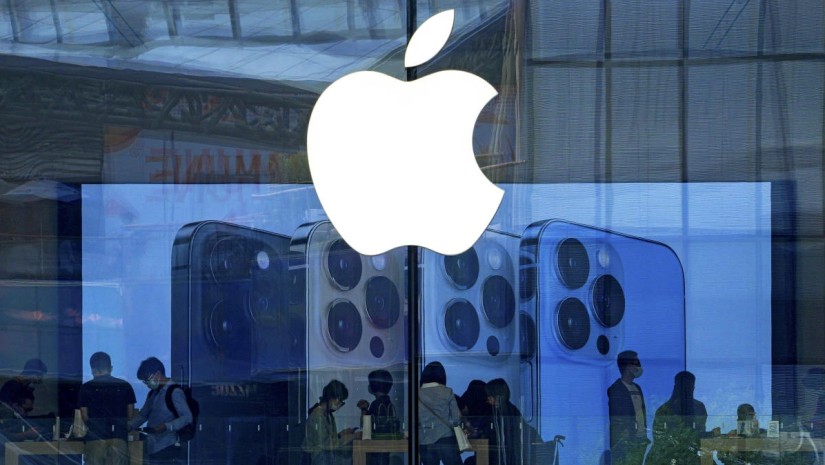Apple is flouting a court order intended to reshape the iPhone maker’s app store in the United States, according to a court filing by rival tech giants including Meta, Microsoft, X and the dating-app company Match Group.
The filing accuses Apple of willfully circumventing the spirit of the original order, which was designed to unlock competition by forcing Apple to let app makers communicate with their users about deals and promotions in specific ways.
That order was effectively upheld by the Supreme Court earlier this year when the justices declined to hear the case involving Apple and Epic Games, maker of the hit video game “Fortnite.” But Epic, and now the four other tech companies, say Apple’s plan to comply with the order is a sham.
Apple’s plan, Wednesday’s friend-of-the-court filing said, still contains rules that “this Court expressly found to be anti-competitive and imposes new restrictions on app developers that ensure the price competition that the injunction was designed to promote will never materialize.”
In a motion accompanying the filing, the companies claimed that Apple’s proposed changes to its app store rules “will have broad real-world impacts on all app developers and their users — not just gaming apps.”
The filing was made to lend the tech companies’ support behind Epic Games, which sued Microsoft in 2021 after its signature game, Fortnite, was banned from Apple’s app store in a dispute over Fortnite’s billing method. Epic is arguing that Apple is violating the court’s order requiring Apple to revise app store practices that were deemed anticompetitive.
Asked for comment, Apple referred CNN to a document it filed with the US District Court for the Northern District of California in January. That document attests to Apple’s compliance with the court order.
A Big Tech rebellion
That some of the world’s most visible tech companies are leaping into the debate highlights how the long-running, high-stakes fight concerning Apple’s app store is far from over, even after the Supreme Court declined to intervene and landmark regulations affecting Apple in Europe have gone into effect.
It also reflects rising criticism of Apple that efforts to regulate the company have triggered a form of begrudging compliance, one in which Apple proclaims to have met its legal obligations but only in ways designed to frustrate others.
In the filing, Meta argued it should be allowed to inform users about ways to pay for “boosted posts” on its platform through means other than Apple’s in-app purchase system. Boosted posts, Meta said, are typically used by small businesses to promote their products on Facebook and Instagram. In February, Meta announced it would be passing along the costs of Apple’s fees, effectively hiking the price of boosted posts by 30%.
Microsoft said Apple’s plan prevents it from steering users toward Microsoft-owned payment platforms “where it could offer better promotions, discounts, or ways to manage their subscriptions.”
Apple’s new proposed commission structure would eat into the revenue of independent content creators, said X. And Match Group said Apple’s proposal “will impact many thousands of other developers and their millions of users, frustrating the injunction’s purpose.”
App store dominance
In January, Apple said it would change its app store terms so that apps could include “buttons or links with calls to action that direct customers to” ways to pay for in-app content other than those controlled by Apple.
According to Meta, Microsoft, X and Match Group, however, the details of Apple’s plan lead to an outcome that is not much different than the status quo.
For example, Wednesday’s brief said, Apple’s proposal, which requires app developers to apply for permission to link out to other payment systems, still imposes restrictions “that dictate every aspect” of how apps can communicate with their users. And although Apple agreed to lower its 30% app store commission as part of the plan, the new fee is still 27%.
“This alone functionally renders external links ineffective as a means of directing customers to alternative payment options, and directly undermines the Court’s goal of creating price competition,” the filing said.
Under the way that Apple’s new terms are written, app makers would also still be prohibited from sending customers to third-party websites such as PayPal to complete transactions, the companies added.
On Wednesday, Apple suggested that nothing in the court’s order prohibited it from designing the proposal the way it did.
Apple referred CNN to portions of its January filing in which the company had pointed out: “The Court stated it would not ‘micromanage’ the new framework,” and that Apple would be structuring the new terms to safeguard user security and privacy.
Source: CNN
















